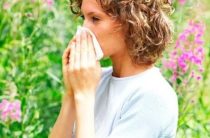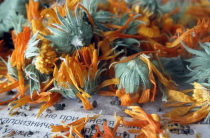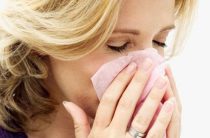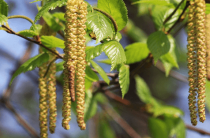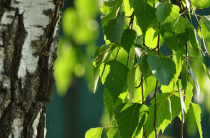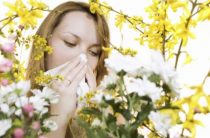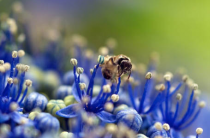Allergy is the reaction of the body as a result of hypersensitivity to some external stimuli. Often there is an allergic reaction in a child. The thing is that the child's immune system is very weak and not strengthened. Anything can be an irritant for a baby. The main ones are food products and plant pollen. Allergy to plant pollen (hay fever) is often found in adults. Birch pollen allergy is recognized as widespread. It is important to identify the presence of the disease in time, and begin timely treatment.
Symptoms of an allergy to birch blossoms
Allergy to birch is characterized by signs of an instantaneous type. Symptoms are especially acute when the patient is near the irritant. Therefore, in the presence of this disease, it is required to minimize the number of trips out of town during the flowering period of birch. You can recognize an allergy by the following signs:
- Severe itching in the mouth, nose, on the mucous membrane of the eyes;
- Allergic rhinitis and conjunctivitis;
- Strong lacrimation;
- Urticaria and allergic dermatitis;
- Itching and burning of the skin.
Very often, pollinosis is the cause of the development of bronchial asthma, which is characterized by severe attacks of dry cough and suffocation. A huge danger to health and life is anaphylactic shock and Quincke's edema. With this type of allergy, they occur quite rarely, yet it is worth protecting yourself, and especially the child, from such a development. With swelling of the upper respiratory tract, tongue, throat, palate, larynx, the access of oxygen to the lungs stops, and the person risks dying from asphyxia.
Causes of Birch Pollen Allergy
By itself, birch pollen is not an irritant for the patient's body. Birch pollen contains more than forty protein compounds, which provoke allergic reactions. According to numerous studies, it became known that only six of them have a detrimental effect on the body. Most people suffer from a protein called glycoprotein.
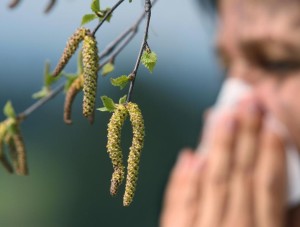 Harmful substances are released precisely during the flowering period, which begins at the end of March. For a healthy person, pollen has no effect. In the body of the patient, certain antibodies are produced, which begin their interaction with birch pollen. The weather also affects the well-being of the patient. So, in a dry and windy climate, the concentration of allergens is higher, and pollen spreads over a large area. Therefore, even being far from a birch grove, one can suffer from allergies.
Harmful substances are released precisely during the flowering period, which begins at the end of March. For a healthy person, pollen has no effect. In the body of the patient, certain antibodies are produced, which begin their interaction with birch pollen. The weather also affects the well-being of the patient. So, in a dry and windy climate, the concentration of allergens is higher, and pollen spreads over a large area. Therefore, even being far from a birch grove, one can suffer from allergies.
Among other reasons that cause an allergy to birch, the following can be noted:
- Problems with the digestive system;
- Low immunity;
- Violation of metabolic processes;
- autoimmune diseases;
- Individual intolerance;
- Heredity;
- Bronchial asthma.
Very often, an allergy to birch is accompanied by cross-reactions. Therefore, the patient needs to limit himself to the use of certain products:
- Tomato, potato, carrot;
- Apple, apricot;
- Cherry, plum.
Treatment of birch pollen allergy
Any treatment requires a diagnosis. So, experts prescribe tests that are required to detect pollinosis, including birch pollen. For this, the patient undergoes skin tests. When an irritant is applied to areas of the skin, the reaction appears almost immediately. To make the picture more complete, it is necessary to donate blood for research.
 In the treatment uses the method of immunotherapy. Treatment involves directing the allergen to the benefit of the body. The systematic introduction of a small diluted dose of the allergen allows you to strengthen the body's immune system, and allow it to respond normally to the stimulus. Treatment in this way in most cases leads to complete recovery, both adults and children. But there are also disadvantages. Injections are carried out only by a doctor in a hospital. The therapy is quite long, takes about 1.5-2 years.
In the treatment uses the method of immunotherapy. Treatment involves directing the allergen to the benefit of the body. The systematic introduction of a small diluted dose of the allergen allows you to strengthen the body's immune system, and allow it to respond normally to the stimulus. Treatment in this way in most cases leads to complete recovery, both adults and children. But there are also disadvantages. Injections are carried out only by a doctor in a hospital. The therapy is quite long, takes about 1.5-2 years.
Modern medicine Treatment of birch allergy usually involves the use of antihistamines. There are three generations of such drugs. The latest generation has a minimum number of adverse reactions and contraindications. Their speed of action is also impressive. But, some of these drugs in their composition has potent components that are prohibited in childhood. So before using them, you should consult a doctor.
The most effective antihistamines include:
| Lomilan | The drug eliminates such allergic manifestations as itching, burning, rhinitis, conjunctivitis, Quincke's edema. The maximum effect of the drug is achieved 6-8 hours after administration. Rarely there is a headache, nausea, dizziness. |
| Tsetrin | Treatment with the drug copes with both seasonal and year-round allergies, including birch allergy. During pregnancy is contraindicated. Adverse reactions include headache, drowsiness, dry mouth, and stomach and intestinal upset. |
| Zyrtec | The remedy copes well with any manifestations of an allergy to birch, including Quincke's edema. Does not have a sedative effect. |
| Tavegil | Long term drug. Available in the form of tablets and injections. In the case of Quincke's edema, it is necessary to resort to the help of injections. Sometimes it affects the functioning of the central nervous system, causing inhibition of reactions. |
| Suprastin | First generation drug. Approved for use by children from one month. Not addictive. Often provokes drowsiness, fatigue, inhibition of reactions. |
In order to quickly remove skin rashes, it is necessary to use special ointments and creams. There are many varieties of them. The appointment of hormonal ointments for allergies to birch is rare. The composition of such ointments is able to affect the entire body, its hormonal background. In addition, their long-term use is prohibited, as they quickly become addictive and further aggravate the situation. Such funds are used for no more than five days.
Non-hormonal agents are effective and safe. Their long-term use is not prohibited. Used by both adults and children. With urticaria during such an ailment as an allergy to birch include:
- Fenistil gel;
- Skin cap;
- Bepanthen;
- Panthenol;
- Wundehill;
- La cree.
